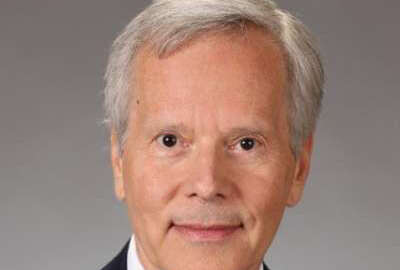

A poll of veterans shows discouragement about withdrawal from Afghanistan and many veterans have mental health issues
Best listening experience is on Chrome, Firefox or Safari. Subscribe to Federal Drive’s daily audio interviews on Apple Podcasts or PodcastOne
The debates continue over the abrupt departure of American forces from Afghanistan just a year ago. It’s a done deal, but it still rankles many veterans of the wars in Afghanistan and maybe to some extent Iraq. The Federal Drive with Tom Temin gets one view from the executive director of the veterans advocacy group Mission Roll Call, Cole Lyle.
Interview transcript:
Tom Temin: Tell us about Mission Roll Call itself a little bit. This is a group we haven’t had on and among the many veterans advocacy groups, What’s your specialty here?
Cole Lyle: Yeah, Mission Roll Call is a 501C3. And our number one priority is veteran suicide prevention. Our second priority is access to health care and benefits. And then third priority is amplifying the voices of traditionally underserved veteran populations; rural veterans, tribal veterans, women, veterans, any sort of group that falls into that category. So obviously, suicide is not necessarily caused by any one thing. But so we take a look at a lot of different aspects of veteran health care and benefits. We have the ability to poll we have about 1.4 million members that we engage with. And we pull veterans directly about issues under consideration by Congress, the White House, the VA, that may affect them so that we can give policymakers information about how veterans feel about policy under consideration. So it gives veterans kind of a direct voice. Traditional advocacy organizations, oftentimes, as you’re aware, probably have the individual veterans voice filtered through local posts and organizations that goes to state conventions, national conventions, before it ultimately gets presented by their national headquarters to members of Congress, we can get as granular as zip code. So if a specific member wants to know what veterans in their district are feeling about a particular piece of legislation, you know, we don’t tend to talk about specific legislation. We talked about the policy, but we can give them a better idea of how veterans in their district or across the country are thinking if it’s a committee of jurisdiction,
Tom Temin: And you have polled your members on the withdrawal from Afghanistan. And again, as we said at the top, it’s still pretty controversial. What did the poll reveal?
Cole Lyle: Yeah. So this is actually why I came on board the organization is because last year, I was already kind of seeing the negative mental health effects of the withdrawal in Afghanistan on the Marines that I served with, had to personally talk down three of them from suicide. So when I was offered this position, I certainly wanted to come on board, because it was something suicide prevention that I’ve been working on for years in DC. So the poll we did last year, just asked has the withdrawal from Afghanistan negatively affected your your mental health and 75% said yes. We did a poll one year later. And we said how does the withdrawal from Afghanistan one year later, impact the way you view America’s legacy in the global war on terror? We polled I think, right around 1400 veterans on that. And 65% of them said it negatively impacted the way they viewed America’s legacy and the global war on terror. We did a subsequent poll that said, one year later, are you satisfied with the level of accountability among senior civilian and or military officials for the execution of the U.S. withdrawal from Afghanistan? We got 3100 veterans in this poll particularly, and 2600 of them or roughly 83% said no, that they were not satisfied with the level of accountability.
Tom Temin: We’re speaking with Cole Lyle, he’s Executive Director of the veterans advocacy group Mission Roll Call. So there’s really two implications here. One, generally, the members as expressed in your survey, feel somewhat dismayed at what could be seen as a betrayal of the effort that they put in, difficult effort in Afghanistan. But then there is the mental health effect. Let’s talk about the first one, the fact that policymakers have let them down anything you can really do to mitigate this at this point?
Cole Lyle: Honestly, and that’s what’s kind of the kick in the pants about it is because you can’t, the only thing you can really do is going forward demand that policymakers that are committing us to conflicts abroad, do so with a limited mandate with clear objectives to ensure that this kind of thing doesn’t happen again. You know, there have been arguments that have said, Oh, we should have gotten out 10 years earlier, when President Biden and Vice President Biden argued for during the Obama surge debate, he was arguing for a small limited force or saying we should have done that. And he was right all along. But we hadn’t, you know, killed Bin Laden at that point. There were other people saying we should have gotten out when Bin Laden left. And it was always this, this line from people that were executing the conflict, military officials that would say were quote unquote, making progress. But they couldn’t really elucidate what that meant specifically, or how it was tied to our national security interests, vital national security interests, what have you. So I think the reason that it dismays so many veterans, having spoken with 100’s of them myself, is they spent a lot of their personal time, less than 1% of the American population serves on active duty at any given time. 80% of veterans have an immediate family member that served. So you’re looking at an all volunteer force that really became a family business, where you had multiple repeat deployments, individual veterans and families bore an enormous burden deploying to Iraq and Afghanistan, and particularly in Afghanistan for it to end the way it did. After so much service and sacrifice, it really just left a bad taste in people’s mouths, particularly because not only of the way it ended, but we left behind, not only hundreds of American citizens, but 10s of 1000s, hundreds of 1000s of Afghan interpreters that put their lives on the line with us, that we promised them, they would have the ability to come back to the United States that we just abandoned. And that’s, I think, more of what really makes it personally so horrific for a lot of these veterans that served with these individuals. And and the United States broke its promise.
Tom Temin: Yeah, those of us old enough to remember the Vietnam era directly, the sounds very much like an echo of that. And then there’s the mental health issue of the members. And the feel that there’s the potential for a correlation between how they feel about this mentally and the effect on their mental health, as they’ve stated in the survey, and a possible uptick in suicides.
Cole Lyle: I think that’s kind of hard to determine, for obvious reasons. But I certainly think that, that it tracks with what we know about how people feel on this particular issue. And the fact that a lot of veterans, they tie a lot of their for better or for worse, their their legacy, their self worth to their service, because there was a time in their lives that they were serving a cause higher than themselves, or they thought they were serving a cause higher than themselves. They made great friends, they made brothers and sisters for life. And then, you know, for something like this to happen, it makes them question “Well, what was that all for?” Like, I did get some benefits from my military service. You know, I got some very tangible benefits. And I got some intangible benefits and those experiences and those friendships. But what were we doing to to serve that cause that was higher than ourselves, like, what did that actually mean? At the time when we were on the ground, we were protecting local women. We were protecting little girls rights to go to school. We were, you know, increasing the prosperity of of Afghanistan and the Afghan people. We were keeping Afghanistan from becoming a safe haven for terrorists abroad. And we’re already seeing you know, ISIS-K, ISIS and Al Qaeda back in Afghanistan one year later. So they’re saying what was this all for? Why did I spend so much time energy and effort and sacrifice in this way for it to just end so horrifically and so horribly? That can have a pretty bad mental health effect.
Tom Temin: Cole Lyle is executive director of the veterans advocacy group Mission Roll Call.
Copyright © 2024 Federal News Network. All rights reserved. This website is not intended for users located within the European Economic Area.
Tom Temin is host of the Federal Drive and has been providing insight on federal technology and management issues for more than 30 years.
Follow @tteminWFED


